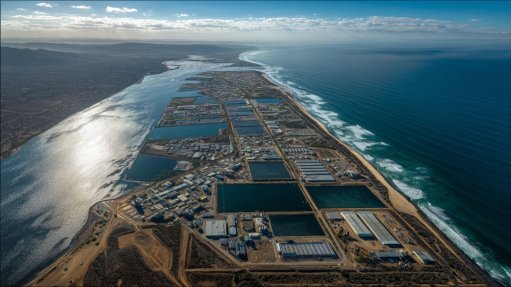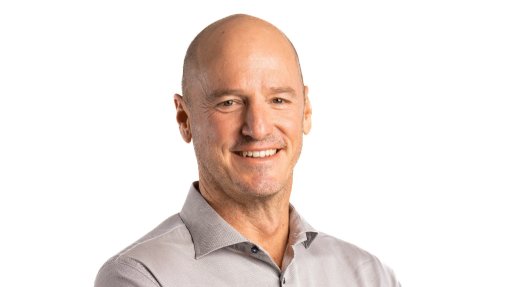Corruption’s exodus effect
It’s often said corruption is a cancer that ravages society, an insidious affliction that’s nearly impossible to eradicate once it takes hold. What’s less frequently discussed, however, is how this malignancy also serves as a powerful push factor driving Africa’s young talent abroad and perpetuating a brain drain.
Corruption’s role in migration from Africa is spotlighted in the 2024 African Youth Survey, published earlier this month. Commissioned by the Johannesburg-based Ichikowitz Family Foundation, it reveals that 58% of young Africans are ready to seize an opportunity to leave their countries because of widespread corruption and their governments’ failure to tackle it. Europe and North America are the most sought-after destinations for the aspiring migrants.
The survey, which gathered responses from participants aged 18 to 24 across 16 countries – Botswana, Cameroon, Chad, CÔte d’Ivoire, the Democratic Republic of Congo, Ethiopia, Gabon, Ghana, Kenya, Malawi, Namibia, Nigeria, Rwanda, South Africa, Tanzania and Zambia – was conducted through face-to-face interviews in January and February.
Concern about corruption among Africa’s youth spans various spheres, including national and local government, business and the police.
“They want tougher sanctions against corrupt politicians, including banning them from standing for office,” the Ichikowitz Family Foundation says of the survey respondents.
As the Mo Ibrahim Foundation points out, the vast majority of Africans who leave this continent’s shores are young and educated, often in search of better employment opportunities, which are mostly scarce in countries where corruption is rampant.
Lending credence to the narrative that it’s mostly skilled Africans who emigrate to the developed North, UK Home Office work visa data for the year ending in September 2023 shows that more than 78 000 visas were granted to Nigerians alone. Zimbabweans and Ghanaians also had a significant representation, with 44 714 and 26 013 visas respectively.
A similar trend is evident in student visa numbers, which are vital, as professionals who qualify abroad often settle and work in their host countries. In the year to September 2023, 111 577 UK study visas were granted to Nigerians, out of a global total of 639 087.
Among the sectors hardest hit by the skills brain drain is healthcare, with a recent book, Borderless Africa: A Sceptic’s Guide to the Continental Free Trade Area, revealing that one in ten doctors working in the UK hails from Africa, despite the continent investing heavily to train doctors and other healthcare workers. Authored by Francis Mangeni, coordinator of regional advisers on the African Continental Free Trade Area, and Andrew Mold, senior economist at the UN Economic Commission for Africa, the book cites research showing that, since 2010, nine African countries have spent more than $2-billion training doctors who then leave for greener pastures.
As a result of the exodus, World Health Organisation statistics show, Chad had 0.00 doctors for 1 000 people in 2017, while Burundi had 0.1. Figures for 2018 show that Zimbabwe, South Africa and Zambia had 0.2, 0.9 and 1.2 respectively. In contrast, the US and other developed countries in Europe and beyond had three to four doctors for 1 000 people during the same period.
Healthcare isn’t the only sector affected by skilled migration. According to Mangeni and Mold’s book, South Africa loses nearly as many engineers to migration as it trains each year. And a survey cited in the book found that 79% of companies across the continent anticipate revenue losses as a result of skills shortages.
Mangeni and Mold’s prescribed solution? Introduce free movement of people within the continent on the double, and the brain drain will immediately become a brain gain as highly skilled Africans move to countries on the continent where there may be a shortage. In that way, the continent will benefit from its investments in skills development, rather than Western countries, which do not bear the cost of this training.
But free movement of people across the continent remains a distant dream: only four countries – Rwanda, Niger, São Tomé and Príncipe and Mali – have signed the Free Movement Protocol, adopted along with the African Continental Free Trade Area Agreement in 2018. We need to step up the pace.
Article Enquiry
Email Article
Save Article
Feedback
To advertise email advertising@creamermedia.co.za or click here
Announcements
What's On
Subscribe to improve your user experience...
Option 1 (equivalent of R125 a month):
Receive a weekly copy of Creamer Media's Engineering News & Mining Weekly magazine
(print copy for those in South Africa and e-magazine for those outside of South Africa)
Receive daily email newsletters
Access to full search results
Access archive of magazine back copies
Access to Projects in Progress
Access to ONE Research Report of your choice in PDF format
Option 2 (equivalent of R375 a month):
All benefits from Option 1
PLUS
Access to Creamer Media's Research Channel Africa for ALL Research Reports, in PDF format, on various industrial and mining sectors
including Electricity; Water; Energy Transition; Hydrogen; Roads, Rail and Ports; Coal; Gold; Platinum; Battery Metals; etc.
Already a subscriber?
Forgotten your password?
Receive weekly copy of Creamer Media's Engineering News & Mining Weekly magazine (print copy for those in South Africa and e-magazine for those outside of South Africa)
➕
Recieve daily email newsletters
➕
Access to full search results
➕
Access archive of magazine back copies
➕
Access to Projects in Progress
➕
Access to ONE Research Report of your choice in PDF format
RESEARCH CHANNEL AFRICA
R4500 (equivalent of R375 a month)
SUBSCRIBEAll benefits from Option 1
➕
Access to Creamer Media's Research Channel Africa for ALL Research Reports on various industrial and mining sectors, in PDF format, including on:
Electricity
➕
Water
➕
Energy Transition
➕
Hydrogen
➕
Roads, Rail and Ports
➕
Coal
➕
Gold
➕
Platinum
➕
Battery Metals
➕
etc.
Receive all benefits from Option 1 or Option 2 delivered to numerous people at your company
➕
Multiple User names and Passwords for simultaneous log-ins
➕
Intranet integration access to all in your organisation


















